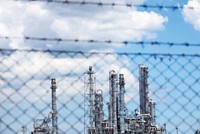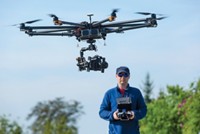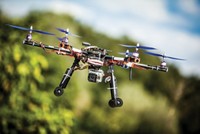Advertisement
Grab your lab coat. Let's get started
Welcome!
Welcome!
Create an account below to get 6 C&EN articles per month, receive newsletters and more - all free.
It seems this is your first time logging in online. Please enter the following information to continue.
As an ACS member you automatically get access to this site. All we need is few more details to create your reading experience.
Not you? Sign in with a different account.
Not you? Sign in with a different account.
ERROR 1
ERROR 1
ERROR 2
ERROR 2
ERROR 2
ERROR 2
ERROR 2
Password and Confirm password must match.
If you have an ACS member number, please enter it here so we can link this account to your membership. (optional)
ERROR 2
ACS values your privacy. By submitting your information, you are gaining access to C&EN and subscribing to our weekly newsletter. We use the information you provide to make your reading experience better, and we will never sell your data to third party members.
Safety
U.S. Congress clears the way for limits on drone flights near chemical plants and refineries
Industry is concerned about potential accidents as well as espionage
by Glenn Hess, special to C&EN
July 15, 2016

The U.S. Senate gave final congressional approval on July 13 to bipartisan legislation that paves the way for restrictions on the operation of drones near chemical plants, oil refineries, and other “critical infrastructure” facilities.
The legislation would require the Federal Aviation Administration to establish procedures for chemical plants, refineries, as well as energy production, transmission, and distribution facilities to petition the agency to limit or ban operation of unmanned aircraft close to a facility.
The provision is included in a bill (H.R. 636) that authorizes FAA programs at current funding levels through September 2017. The legislation, which the Senate passed by a vote of 90-4 on July 13, now goes to the White House for President Barack Obama’s expected signature. The House of Representatives approved the measure on July 11.
Drones, unmanned aircraft flown remotely, have surged in recreational popularity. This raised concerns that a drone could accidentally crash into an industrial facility, hit power lines, or be used by a terrorist to surveil potential targets.
Another worry is the threat of industrial espionage through aerial photography. Industry’s anxiety is focused on the possibility that “enterprising individuals will take aerial photos at these sites and try to sell them to competitors,” says John J. Durkay, legal counsel for the International Safety Training Council, which trains contractors and employees at chemical and refining plants in southeastern Texas.
“Drones photographing units can compromise facility trade secrets.” Durkay tells C&EN.
The bill’s provision on drones was authored by Rep. Brian Babin (R-Texas), who represents an area near Houston that has more petrochemical and refining facilities than any other congressional district in the country.
“This carefully crafted language will ensure both the protection of our oil and gas facilities and their employees from unauthorized drone activity, while also respecting the growing business of public and commercial drone use throughout the U.S.,” Babin says.
The American Chemistry Council (ACC), which represents major U.S. chemical companies, urged Congress to restrict drone use around the industry’s facilities. The bill directs FAA “to tackle the very real threat posed by using drones for malicious acts without interfering with their growing use by the public for recreation and their use for commercial applications,” ACC says.





Join the conversation
Contact the reporter
Submit a Letter to the Editor for publication
Engage with us on Twitter